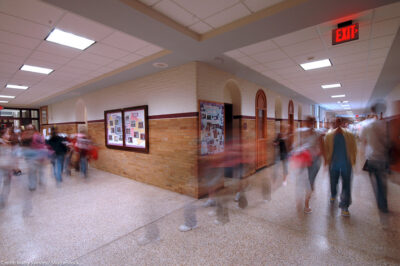The New York Times Highlights ACLU's Religious Freedom Work in Public Schools


Contrary to what you might see elsewhere on the Internet, the ACLU is not trying to eliminate religion from public schools. Students are free to pray in class, at lunch, before a football game or anywhere else. We also stand up for students who wish to express their faith by wearing rosaries, yarmulkes, uncut hair or anything else that outwardly signifies their devotion to a particular creed.
What is not permitted, and never has been, is allowing public school teachers and other officials to use the positions entrusted to them by the State and parents to impose their religious beliefs on students by officially sanctioning religious activities in public schools. School officials may not subject students to official prayer or proselytizing. This is clearly forbidden by the Establishment Clause of the Constitution.
Unfortunately, we’ve been receiving reports from concerned students and parents about schools around the country overstepping these boundaries by a wide margin, to the degree that some students feel like outsiders in their own school. One of the most recent, and egregious, examples is in Chesterfield County, South Carolina. The New York Times just published a piece on our work there. School officials in the Chesterfield County School District have hosted worship rallies during the school day featuring rappers who exhort students to give their lives to Christ. Preachers are invited to tell kids that they need a relationship to Jesus “more than anything else” to avoid drug addiction. Our client, an atheist student who complained about the rally and other aggressive activities to promote religion, was told he could skip the rally if he reported to the in-school suspension room.
Please note that by playing this clip You Tube and Google will place a long-term cookie on your computer. Please see You Tube’s privacy statement on their website and Google’s privacy statement on theirs to learn more. To view the ACLU’s privacy statement, click here.
Telling non-believing students that they can opt out or not pray along is not an option. Here at the ACLU, we believe that the right to pray as you wish or believe what you want is a vital part of the American fabric. This promise of religious freedom means that religious education is the province of parents, families, and churches — not the government and not public schools. Public schools should provide a welcoming atmosphere for students of all beliefs. No student should have to feel as though they’re being punished for not praying or believing the way a teacher wants them to.
Learn more about religion in schools: Sign up for breaking news alerts, follow us on Twitter, and like us on Facebook.


